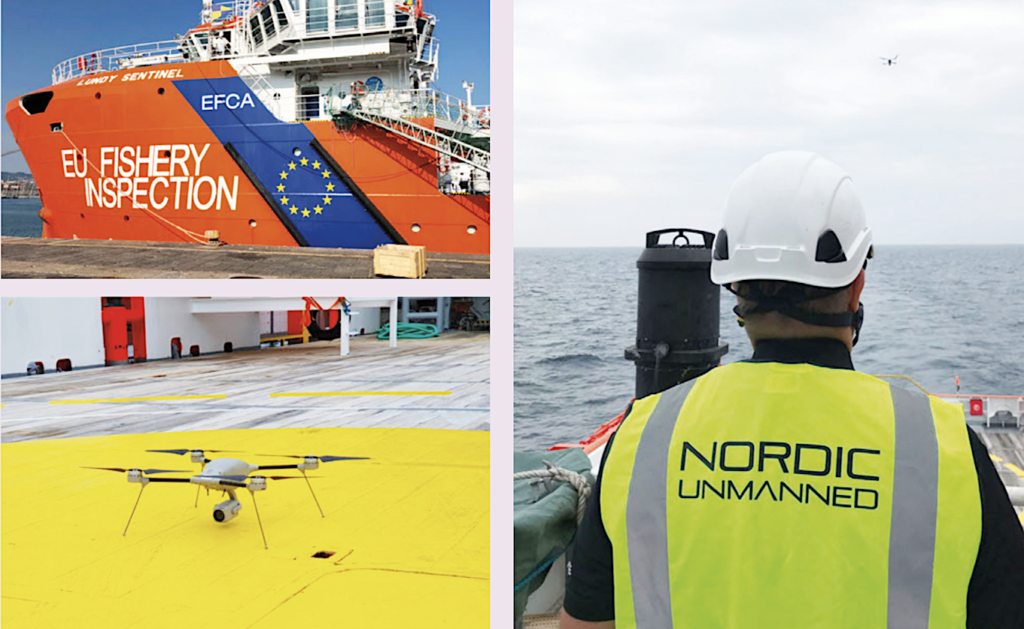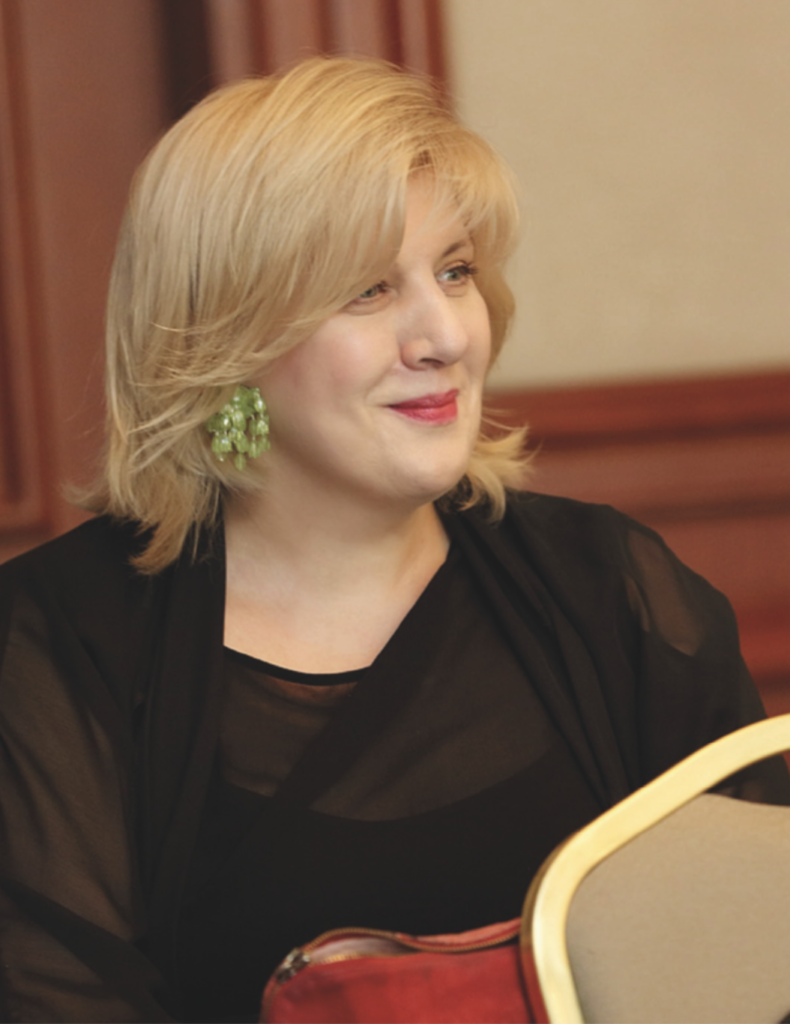FOUR METRES UNDERGROUND: ILLEGAL CIGARETTE FACTORY UNCOVERED IN A BUNKER IN SPAIN
On 13 and 14 February 2020, the Spanish Civil Guard (Guardia Civil) dismantled an organised crime group involved in illegal cigarette manufacturing and drug trafficking. Europol supported the operation, which also involved the Lithuanian Customs Criminal Service (Muitinės kriminalinė tarnyba), Polish Police Central Bureau of Investigation (Centralne Biuro Śledcze Policji) and law enforcement authorities from the United Kingdom.
Tobacco, beds and pillows
The operation uncovered a full range of production facilities operated by the criminal group. Law enforcement authorities raided the primary production facility where the raw tobacco was cut and prepared for the second production phase. The Spanish law enforcement officers uncovered the manufacturing facility hidden in a bunker four metres underground. In the facility, believed to have been operating since 2019, workers made and packed the counterfeit cigarettes; a complete production line under one roof. Beds and living quarters for the workers were also found underground. This is the first underground factory to be discovered in the EU. Workers there were forced to work in extremely dangerous and toxic conditions. Locked up four metres underground, they were not allowed to leave the facility on their own, and no emergency security was in place.
Similar cases uncovered that criminals blindfold the workers when taking them to and from the factory. Although paid for their work in the facility, workers are usually not allowed to leave or make contact with others while working. Criminals often even seal the premises to enforce this. These illegal activities are estimated to bring in about €625 000 per week in criminal profits.
Cannabis plantation also dismantled
During the raids, law enforcement officers searched 13 locations and arrested 20 people, suspected of being members of the criminal group. One of them is believed to be the leader of the organisation.
The production line and the criminal group has been dismantled with seizures including:
over 3 million counterfeit cigarettes;
20kg of hashish;
144kg of marijuana;
3 weapons;
8 GPS tracking devices;
1 jamming device.
The cigarettes were made in unsanitary conditions and of low-quality components. The criminal group distributed the cigarettes on the European black market, estimated to represent about 46.3 billion cigarettes in 2018. The same studies mention that this costs EU governments about €10 billion a year in lost revenue.
Europol facilitated the information exchange between the participating countries, provided coordination support and analysed operational information against Europol’s databases to give leads to investigators. Europol also provided on-the-spot operational support by deploying two analysts to Malaga, Spain, to provide real-time analytical support.
RPAS SURVEILLANCE FLIGHTS BEING USED TO ENHANCE FISHERIES CONTROL
The European Maritime Safety Agency (EMSA) has been closely cooperating with the European Fisheries Control Agency (EFCA) to support enhanced fisheries control by providing additional surveillance capacity from a remotely piloted aircraft system (RPAS). EMSA has made available a quadcopter for flights taking off from EFCA’s chartered offshore patrol vessel, the Lundy Sentinel, and operating over areas of interest in the Mediterranean Sea, western waters of the North-East Atlantic Ocean, North Sea and Baltic Sea.
The RPAS service provided by EMSA offers complementary support to EFCA which has been exploring new and innovative solutions to enhance fisheries control. More specifically, the RPAS service enables pre-boarding assessments, surveillance during boarding and post- boarding analysis to be carried out remotely and thereby benefiting fisheries inspections and control. This concept can also be applied to other coast guard functions.

By flying in the vicinity of a vessel, the RPAS can collect data relating to the ongoing activity. This data can then be transmitted in real time to EFCA’s liaison officer deployed on board the Lundy Sentinel, as well as to EFCA’s coordination centre in Vigo, and EMSA’s headquarters in Lisbon via secure Satcom links.
These RPAS services take place within the context of European cooperation on coast guard functions, in which EFCA, EMSA and Frontex provide support to member states’ national competent authorities ensuring cost effective and coordinated action.
TURKISH AUTHORITIES MUST RESTORE JUDICIAL INDEPENDENCE AND STOP TARGETING AND SILENCING HUMAN RIGHTS DEFENDERS
The Council of Europe Commissioner for Human Rights, Dunja Mijatović, calls on the Turkish authorities to restore judicial independence and stop the practice of targeting human rights defenders, lawyers and journalists and silencing them by using administrative and judicial actions. The report is based on the Commissioner’s visit to Turkey carried out in July 2019.
The Commissioner considers that the measures that the authorities took in the aftermath of the state of emergency had devastating consequences on judicial independence and impartiality and threaten the rule of law and human rights in Turkey. Numerous long-standing problems, such as the misuse of detentions on remand, have been exacerbated and compounded by new shortcomings. The Commissioner is alarmed by the fact that the Turkish judiciary displays, especially in terrorism-related cases, unprecedented levels of disregard for even the most basic principles of law, such as presumption of innocence, no punishment without crime and non-retroactivity of offences, or not being judged for the same facts again. At the same time, procedural guarantees such as adversarial proceedings, equality of arms and the right to a lawyer, were significantly and permanently eroded during the state of emergency, resulting in a level of legal uncertainty and arbitrariness which threatens the very essence of the rule of law.
“I am aware of the extraordinary challenges faced by Turkey in fighting many terrorist organisations on many fronts, as it is its right and duty. However, disregarding human rights in this process would only discredit and undermine this fight in the long run, while eroding the rule of law and trust in the justice system at the same time.”
The emergency decrees have also had a negative effect on access to justice and to an effective remedy. “The current system, including the Inquiry Commission, is unlikely to satisfy the criteria enshrined in the European Convention on Human Rights, unless the administrative courts display a much higher level of respect for the individuals’ human rights,” says the Commissioner. She also raises concerns about recent developments jeopardising the effectiveness of individual applications to the Constitutional Court as a domestic remedy for human rights violations.

the Media, Dunja Mijatovic
© Wikicommmons media
The Commissioner calls on the Turkish authorities to revert to the situation before the state of emergency in terms of constitutional and structural guarantees for the independence of judges, as well as procedural fair-trial guarantees, and then to reinforce them progressively. She also recommends a complete review of criminal legislation in the light of the clear guidance already provided to Turkey by Council of Europe bodies over the years. Considering that the prevailing attitude within the judiciary represents one of the main problems concerning the administration of justice today, she urges the Turkish authorities to change course and start respecting scrupulously the independence of the judiciary. While welcoming the authorities’ Judicial Reform Strategy, the Commissioner considers that the measures taken so far do not correspond to current and future needs, which require a more comprehensive and resolute response.
Stressing the importance of civil society organisations and human rights defenders in a democratic society, the Commissioner is alarmed by the hostile environment against them and by a virulent and negative political discourse that frequently leads to biased actions by administrative authorities and the judiciary, and calls on the authorities to address this problem. The Commissioner considers that the misuse of criminal investigations, proceedings, detentions and sentences to silence human rights defenders and to discourage civil society engagement is the most acute symptom of the mounting pressure they are facing in Turkey. The Commissioner urges the authorities to acknowledge this situation and rectify it through all available means.
“The authorities should also establish transparent and objective criteria and procedures regarding public funding, consultation of and collaboration with civil society organisations active in the field of human rights. They should revoke the obligation to register all members of NGOs in a centralised database of the Ministry of the Interior and lift open-ended and indiscriminate bans, such as the ban on LGBTI-related activities in Ankara.”
Lastly, Commissioner Mijatović underscores that lawyers have been affected both as human rights defenders and as an integral part of the judicial process guaranteeing the right to a fair trial. She calls on the authorities to lift the restrictions to procedural defence rights adopted during the state of emergency, and to allow lawyers to work freely and safely.
SUSTAINABILITY IN AVIATION: TU DELFT AND TU BRAUNSCHWEIG JOIN FORCES

Two leading Institutes of Technology in aerospace research in Europe agree on common objectives
The Faculty of Aerospace Engineering at TU Delft in the Netherlands is considered the largest faculty of its kind in Europe. The Aeronautics Research Centre Niedersachsen (NFL) in Braunschweig is an alliance of the aerospace engineering institutes of the TU Braunschweig, the German Aerospace Center (DLR) and the Leibniz University Hannover (LUH). Both universities, TU Delft and TU Braunschweig, carry out excellent research in aeronautics with a focus on sustainable flying. The agreement on a strategic partnership adds a new, far-reaching dimension to the existing cooperation.
On 7 February 2020, Professor Henri Werij, Dean of the Faculty of Aerospace Engineering at TU Delft, and Professor Rolf Radespiel, Chairman of the NFL, signed a joint declaration in Braunschweig. This defines common goals for their basic research, geared towards sustainability in aviation.
What is special about the agreement between the two universities is its quality: It goes far beyond customary university agreements, and establishes a particularly close cooperation. Both universities have agreed to share their research facilities and unpublished research data. The Memorandum of Understanding also introduces so-called cross-supervising, i.e. the scientific lead of research projects and the supervision of doctoral students at the partner university. In addition, the two parties will work together on student exchange, aimed in particular at Honours Students and interns.
“This is a special alliance of international partners at eye level: TU Delft has one of Europe’s leading faculties in aviation research. At TU Braunschweig, we are internationally visible and recognised with our top-level research in the Cluster of Excellence “Sustainable and Energy-efficient Aviation” (SE2A) and our collaborative research with DLR and LUH”, says Professor Radespiel.
Professor Werij: “These two universities are partners, because they both have a very strong drive to make aviation truly sustainable and recognize the need for collaboration to reach extremely ambitious goals. The fact that we have the same vision and speak the same language will make our partnership extremely powerful and fun at the same time.”
WORLD WILDLIFE DAY 2020: DECODING THE SECRETS OF ANIMAL MIGRATION WITH ISOTOPES AND IAEA DATA
Migratory animals, their large distance movements and life cycles have eluded scientists for centuries, particularly for hard-to-track and tiny species like the iconic monarch butterfly. But thanks to the help of isotopic techniques, experts worldwide can better understand the flows and patterns of animal migration where traditional techniques have shown their limits.

World Wildlife Day 2020 celebrates “sustaining all life on earth” at a time when, more than ever, conservation plans are needed all around the world. Climate change, destruction of habitats for agriculture, illegal poaching and logging, pollution and use of pesticides are threats to animal species around the globe.
“The rate of species loss is exponentially higher than at any time in the past 10 million years. […] One million species are in near-term danger of extinction,” said Antonio Guterres, United Nations Secretary-General, to the General Assembly on 22 January 2020, urging for the adoption of the post-2020 global biodiversity framework.
To preserve the lives of migratory animals, isotopic techniques significantly contribute to identifying these animals’ origin, their breeding grounds, and wintering and intermediate stopover sites. Based on this scientific data, policy makers can develop better conservation methods for all sorts of animals, such as fish, birds, mammals or insects.
“Isotopic techniques offer an incomparable advantage over the traditional tracking methods, as they are non-invasive and do not necessitate the recapture of the same animals,” said Leonard Wassenaar, Head of the IAEA’s Isotope Hydrology Laboratory.
For over a century, conventional mark-and-recapture approaches used to track animal movement have relied on external markers, such as tags and radio and satellite tracking, which are inappropriate for small and short-lived animals. Then, in 1996, research by Leonard Wassenaar and Keith Hobson, who at the time were isotope scientists for Environment Canada, demonstrated that isotopic techniques can be used to determine the origin of individual animals.
Their research is based on measuring deuterium — a rare isotope of hydrogen — in rainwater, which is directly absorbed by plants or ingested by animals and humans. As rainwater and its deuterium composition are unique to the area where the rain comes from, rainwater deuterium content serves as a marker that scientists can use to identify the origin of individual animals by measuring the amount of deuterium in hair, wings, claws, feathers or bones. Source IAEA
Click here to read the 2020 April edition of Europe Diplomatic Magazine


